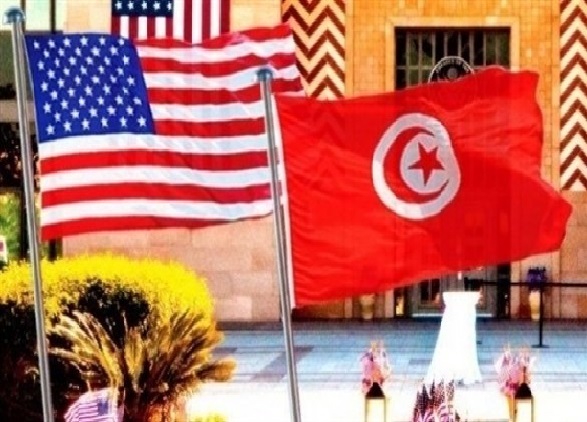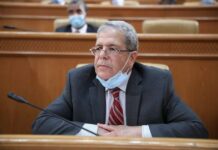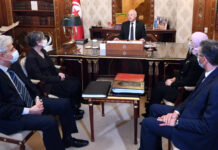Parties consider the visit “interference in internal affairs”
The Tunisian presidency is preparing to receive a four-member delegation from the US Congress, headed by Senator Chris Murphy, head of the Senate Foreign Relations Subcommittee, who is in charge of South Asia and Central Asia and the fight against terrorism.
In addition to the head of the delegation, three other members of the Democratic bloc in the Senate will participate in the visit scheduled for tomorrow, Saturday, and they are Richard Blumenthal, John Osoff and Chris Van Hollanthe.
The visit will be devoted to reviewing the political situation in Tunisia, meeting the President of the Republic, Kais Saied, and receiving a detailed answer to the letter sent by US President Joe Biden to the Tunisian President on August 13. Several Tunisian parties, especially from the leftist movement, view this visit with suspicion, which they previously classified as “external interference in Tunisia’s internal affairs,” while several political leaders believe that external parties from the United States, European Union countries and other regional countries may extend a “rope Surviving to save the representatives of political Islam in Tunisia after they were held responsible for the bad political situation during the last ten years.
The first US visit was headed by Deputy National Security Adviser John Viner, who met with President Saied and urged him to “accelerate the return to the democratic path” and restore parliamentary democracy in the country.
The American side indicated that the delegation would discuss with President Saied “the urgent need to appoint a prime minister charged with forming a government that has the ability to address the economic, social and health crises facing Tunisia.” In addition to the US administration’s expression of its support for the democratic process in Tunisia, it indicated that it is awaiting the next steps that the president will take at the political and governmental levels. Saied had assured Washington that the exceptional measures he took fall within the framework of implementing the constitution and respond to a broad popular will.
In a related context, a group of parliamentarians, frozen since last July 25, called for “the return to democratic life”, setting a time limit for exceptional measures, and re-activating Parliament after amending its internal system, in addition to the immediate lifting of the travel ban and compulsory residence measures imposed on many MPs, state officials and businessmen.
In this regard, Yadh Elloumi, a former leader of the Qalb Tounes party, said that parliamentarians are demanding an end to the period of exceptional measures and a return to normal political life. Elloumi denied that the Tunisian parliament represented the “imminent danger” that made the President of the Republic take a decision to freeze it and lift the immunity of its members. He called for enabling the accused parliamentarians to obtain fair trials that guarantee their right to defense without defamation or abuse, as he put it.
On the other hand, the “Ennahda” movement, which led the political scene before the measures taken by Saied on July 25, confirmed that it “bears responsibility for the conditions that the country has experienced in recent years” along with the parties it ruled with, according to its size in participation in governance and management of the country. And following a meeting of its executive office running the business after the dissolution of the executive office by the movement’s president, Rached Ghannouchi.
Rifi-JDD











